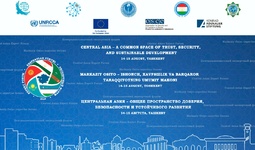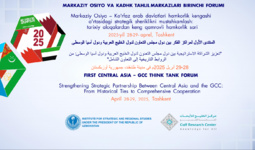Access to education and employment have emerged as major concerns for young people in Uzbekistan in a new report launched today by UNICEF, Nationwide Movement ‘Yuksalish’ and the Youth Union of Uzbekistan.
Titled, ‘Youth of Uzbekistan: Challenges and Prospects’, the report provides an overview of the situation of young people in Uzbekistan in key areas of their life such as education and learning, professional life and economic opportunities, digital life, the Internet, family life and civic participation.
“This new report, which captures the voices of an important constituency, reminds us all of our duty to young people — to prepare them for a world that is rapidly evolving, full of uncertainty; a world where education and skills can mean the difference between unemployment and employment, between poverty and prosperity, between despair and hope,” said Munir Mammadzade, UNICEF Representative in Uzbekistan. “Critically, we will not reach the ambitious goals of taking Uzbekistan to the next level of socio-economic development or UN Agenda 2030 for Sustainable Development, if we fail these young people, who represent the largest cohort in the history of Uzbekistan.”
Findings showed that education (77% of respondents) and employment (61.8% of respondents) are the major concerns for young people in Uzbekistan. The report also showed that a sizable number (54.6%) of young people were not in education, employment or training after completion of compulsory secondary education. This rate increases rapidly for women after 18 years of age and reaches 74.0%. For men it remains lower and decreases with age to 24.8%.
The report also underlined key skills and knowledge young people valued the most. These include proficiency in foreign languages, business literacy, entrepreneurship skills. Young people underlined their need in soft skills such as leadership and flexibility.
Gender inequality is also seen in access to the Internet and obtaining IT skills. The number of young women who never use Internet (68.1%) is two times higher than that of men (34.3%). The report also revealed that often, girls and young women are stigmatized because the Internet is seen as a place that influences their behavior badly.
“Raising open-minded, determined, active, skillful and knowledgeable youth is an essential condition for sustainable and rapid socio-economic development of the country. Fulfilment of the rights and interests of young people - is one of the key priorities of the state policy’, said Bobur Bekmurodov, Chairperson of the Nationwide Movement ‘Yuksalish’.
Based on the data analysis, the report provides recommendations with a focus on enhancing formal education, life skills, technical, innovation and entrepreneurial skills of young people. One of the main recommendations is promotion of active participation of young women in economic, social and political life by provision of equal opportunities and promotion of behavioral change.





















leave a comment